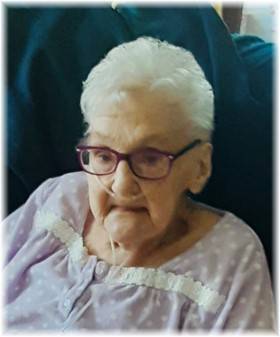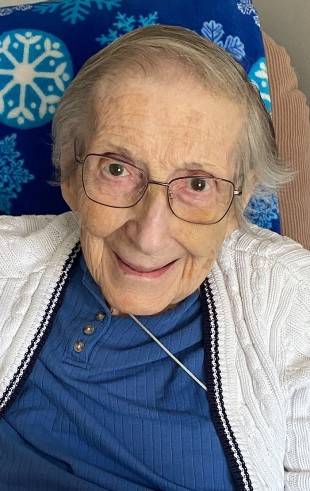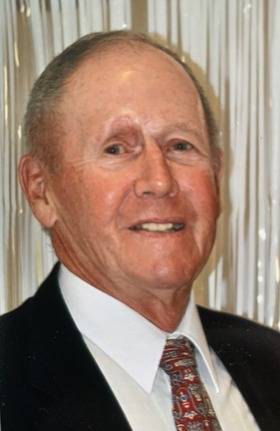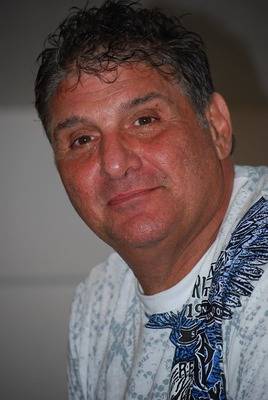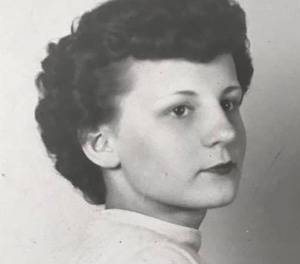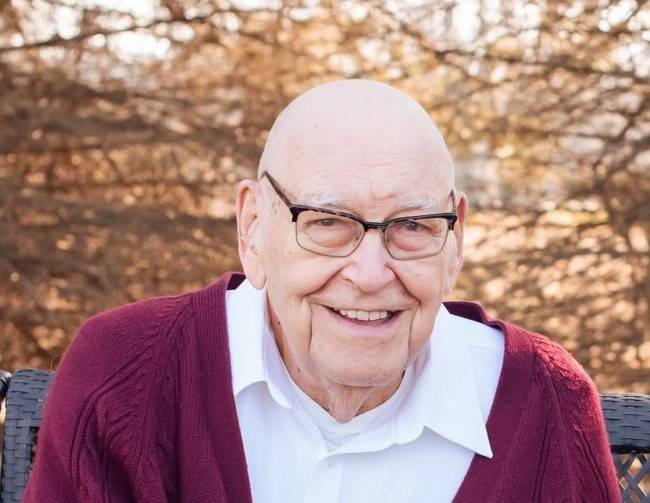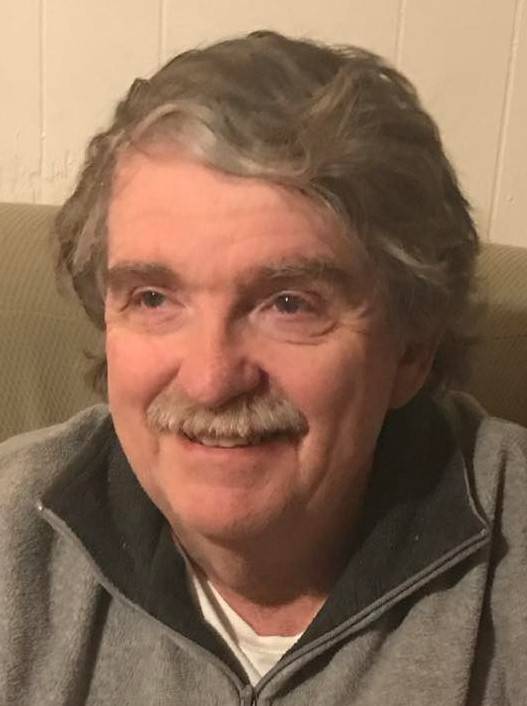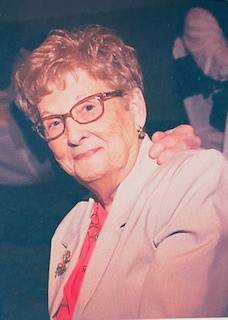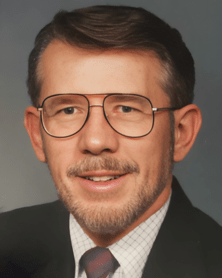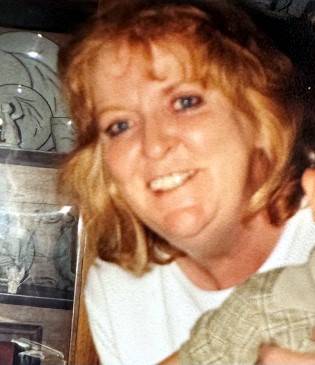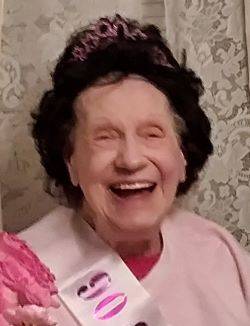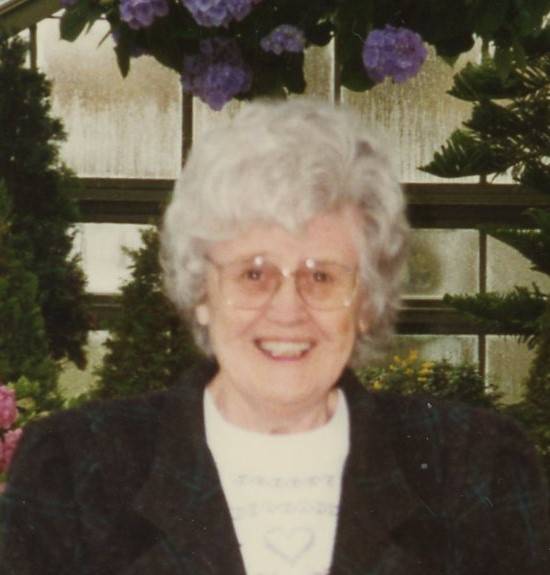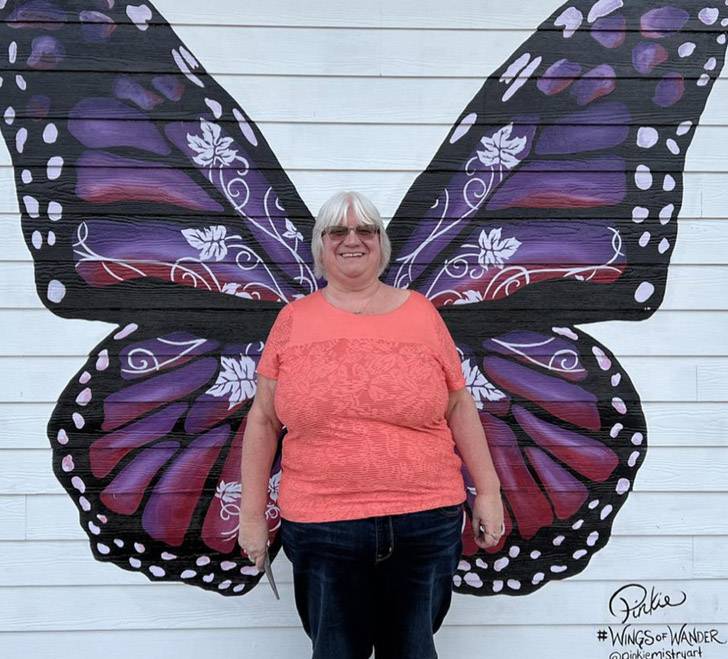Hiram Kasten
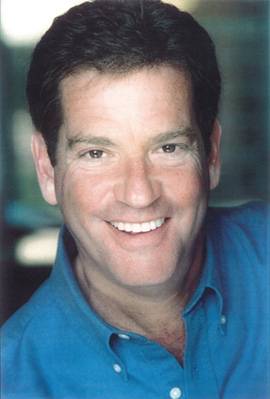
Hiram Kasten saw the light flash before his eyes, as he so often did when he was a young comedian in the New York comedy clubs during the late 1970s and 1980s, meaning his time was up and start wrapping up his set. This time it was to make his exit from this worldly stage to another. Waiting in the wings would be his beloved mother, Mildred “Marsha” Polansky Kastenbaum, with arms open wide to hold her precious son once more. There beside her, would be his sweet and loving father, Samuel “Jimmie” Kastenbaum, ready to place his Yankee cap on his head, as he so often did as a child, for his final outing. Both his parents having predeceased him. His devoted sister, Sari Spector Kastenbaum, who predeceased him also, would be waiting to share some familiar song with him to which she would have changed the lyrics to fit their own uniquely shared sense of humor. Walking to the stage door, they would be joined by his predeceased mother-in-law, Lois Quartley Kisiel, who cared for and loved him fiercely as if he were her own son. His kind and gentle father-in-law, Henry John Kisiel and his jovial and fun-loving brother-in-law, Kim Henry Kisiel, who both predeceased him, would be waiting to greet him with their happy smiles and extended hands.
On October 30, 1952, Hiram Kasten, (née Hiram Z. Kastenbaum) made his entrance onto his own wonderful and exciting stage. From the very beginning, he was predestined to be a performer, an entertainer, an actor and a comedian. He was born in The Bronx, on Clarke Place, just off the Grand Concourse and a mere mile walk to Yankee Stadium which became his childhood playground. His lifetime love of baseball began as a boy when he would watch “the greats” in person - Mickey Mantle, Roger Maris, Whitey Ford, Yogi Berra and Elston Howard. He loved his Jewish neighborhood with corner candy stores and stickball with his friends. His extended family all lived within walking distance and he felt safe and secure in exploring this colorful and delightful world. His father took him on Shabbat to their small shtiebel for services, but often, times Hiram would ask to go to the larger Temple Adath Israel on the Grand Concourse. It was a beautiful synagogue with an organ and a choir and young Hiram connected with the theatrical splendor. He was and always remained a Bronx boy through and through. He prided himself on being a product of New York City’s great public school system from elementary through Taft High School and then CUNY’s Lehman College, where he majored in Theatre – all in his beloved Bronx.
His dream was always to become an actor, and immediately after college in 1974, he was cast by Israel Horovitz in a revival of his play “Line” at the 13th Street Repertory Theatre. After a few years of bouncing around the theatre scene, he decided he would try his hand at stand-up comedy. His first stop was an obscure jazz club on the Upper East Side called Pearl’s Place, where he made the musicians laugh more than the audience with his hip references and style. After a few times onstage there, he set his sights on an actual comedy club and walked into The Comic Strip. The Emcee was Jerry Seinfeld and he passed Hiram on his first audition and he became a regular. The two struck up a friendship that has lasted for 45 years.
The Comic Strip became Hiram’s home base and there he honed his craft as a comedian. Milton Berle once said, “There's a difference between being a comic and a comedian. A comic is a guy who says funny things, and a comedian is a guy who says things funny”. Writing an actual act was never the end goal for Hiram; he was, for better or worse, in the latter category of being able to “say things funny”. To Hiram, it was all about the performance and the desire to entertain. He channeled the greats in his demeanor onstage, always dressing for the occasion. With his open-collared shirts and natty sports jackets, always with a pocket hanky billowing forth, he stood out amongst his peers. He was the “missing link” to another generation of comedians he watched as a child on TV. He emulated Alan King, Jackie Gleason and Jerry Lewis. He loved nothing better than donning one of his tailored suits or tuxedos and walking onstage for a show or a benefit and being entertaining. His comedy and demeanor were not some contrived gimmick to “put on” a character. He was the real deal. He belonged to a different time, a different generation, and he didn’t particularly care if he was not au courant. He was Hiram Kasten, and to know him and be his friend, one had to step into his world – and there were many who did, just to get a glimpse of what they were missing. His peers would come into the room to see him perform, not for his jokes or any semblance of great material, but for his panache and escape into a world of show business that was part vaudeville, part Catskills and a whole lot of Rat Pack. He always liked the piano players at the clubs to stay onstage while he was doing his set and follow him, and only the best could, like Eddie Rabin at Catch or Bob Sprayberry at The Strip. He would often break into song and then do a soft shoe across the stage. His act was never the same twice; his bits would never be in any order to get him that solid set he needed for “The Tonight Show” or Letterman. He liked being a free spirit, and he felt he was there to entertain, which was all he ever wanted to do, even at the detriment of furthering his career. “A truly charming guy”, the moniker given to him by the wonderfully talented artist and his dear friend Lori Field, could make audiences love him. He only had to take his cigarette case out of his inside pocket, take out a Kent, tap it on the case, pull out his black onyx lighter and then snap his fingers à la Jackie Gleason and say “smoke ‘em, if you got ‘em”. Then he would lift up his drink and toast the crowd and he was “off to the races” with the audience in the palm of his hand.
Hiram rode the wave that was the Comedy Boom of the 1980s. He performed in some club, somewhere in the tri-state area or on the road six nights a week. Monday was his self-imposed “night off”. The Comic Strip was his home base, and for many years, he was the resident Emcee. He also became a regular at Catch a Rising Star and occasionally The Improv, The Comedy Cellar and Caroline’s. He added to his club roster, Dangerfield’s, where he ran his own show every Sunday night for years. He got to work with and hang with many of the great comics and jazz artists that passed through there such as Jackie Mason, “Mr. B” Billy Eckstine and Sara Vaughan, besides Rodney himself. They would talk for hours in the Green Room and the bar after hours, all about show biz and they would regale him with their stories of how it used to be.
Around 1981, he worked a new club called The Big Apple. His first night there he spotted a waitress that caught his ever-roving eye. He asked another comic, Scott Blakeman, to make the introduction. She was a young actress, and the two found common ground in their love of theatre and the arts. Diana Kisiel started to make the scene at the clubs with Hiram. Their courtship went on for five years through the exciting days of the early 80s comedy boom. They forged lifelong friendships with other young comedians, singers, musicians, actors and artists of the day, all beginning their careers. Their life and the lives of their friends were heady days. Hiram and his fellow comedians made the rounds of the clubs in Manhattan during the weeknights. However, weekend gigs could be out on The Island or New Jersey and then come back to Manhattan for late-night sets at The Strip and Catch on the Upper East Side, The Improv on the West Side, or The Cellar in the Village. It was a big deal to have a show outside of town and then two or three spots in town on the weekend. One could actually make a living, and he did! After the clubs closed, they would do some late-night bar-hopping with fellow comedians, followed up by early morning repasts at some all-night diner or Chinatown. This went on for several years in the early 80s, and the shared dreams and ambitions of their fellow comedians and actors led to unshakeable bonds throughout their lives.
Hiram loved talking “shop” with his colleagues. He could pull out a reference that even they would marvel at how he knew that. If any of them got him on the phone, they had better be prepared for a
very long conversation that would go on for hours. There were so many stories in his head, but not being the writer or having that discipline, he very rarely put pen to paper. Hiram was in the moment, and if you weren’t there with him in that moment, then it would be lost forever.
Hiram and Diana married in 1986 in New York City in a storybook wedding at Park Avenue Synagogue and Tavern-on-the-Green. A year after their marriage, Diana gave Hiram an ultimatum: time to leave the Bronx and either get a house upstate and continue working as a stand-up, or move to LA and follow his dream of working as an actor in television which he always wanted, even more than stand-up. In 1987, they packed up their apartment and drove cross-country with their dachshund Petruchio for their next big scene change.
Some of their New York friends, comics and actors, had already gone out to the West Coast to find work in TV and film. By the late 80s, the mass exodus from New York to LA was in full swing. Having had the great camaraderie that was fostered in the New York comedy clubs, the couple and all of their New York friends had no trouble picking up where they left off and had their own very unique community. Diana even found apartments for several of the NY comics and writers, and their own little comedy compound developed in Hollywood. Immediately upon getting to LA, Hiram landed a recurring role in a pilot for CBS with Frank Langella and Sally Kellerman, called “Dr. Paradise.” Other roles followed in many sitcoms and some have become classics. He played Michael, a co-worker to Elaine Benes (Julia Louis-Dreyfus), in “Seinfeld.” He had guest starring roles in “Mad About You,” “Everybody Loves Raymond,” and “Curb Your Enthusiasm.” Some of his other TV credits included “7th Heaven”, “Sabrina the Teenage Witch,” “Brooklyn Bridge,” “Without a Trace,” “Saved by the Bell,” “The Fresh Prince of Bel-Air,” “Brotherly Love,” “My Wife and Kids,” “Men of a Certain Age,” “Dirty Sexy Money,” “Fat Actress,” “Yes, Dear,” “State of Grace,” “It’s Like, You Know...,” “Cybill,” “L.A. Law,” to name a few.
During this time, their daughter Millicent came along. Hiram loved being a dad and was a stay-at-home father for the first few years of Millie’s childhood. He would come up with new things for the two of them to do every day. Lots of times, it was to an audition, and she would sit amongst the waiting actors chatting up a storm. They would have a standing late lunch at Jerry’s Deli. Many times, other comedians would join them, and Millie would hear the stories, pick up the timing and repeat the jokes. Hiram adored his little girl, and when she would pull out a reference or make a callback, he was thrilled! He was always so proud of the show-biz education she got from him.
Out of all the roles he played, his most perfect part was yet to come. Television writer and producer, Don Reo and actor/musician David Cassidy were producing a show at The Desert Inn in Las Vegas based on the Rat Pack. They were casting for a Joey Bishop-like character to add the comedy element to the show. Don Reo asked two TV producer/writer friends, Jim Vallely and Ron Zimmerman, if they knew of anyone. The two suggested Hiram, and as luck would have it, he would be hosting that very evening a “roast” for Mike Rowe, the comedy writer/producer of such hits as “Family Guy” and “Futurama.” The roast was to be held at the world-famous Beverly Hills Friars Club, a place where the original Rat Pack ate and played cards. Unbeknown to Hiram, Don Reo and David Cassidy showed up at the Friars Club that evening to see for themselves. Never had a part and an actor been so ideally suited! Hiram killed, and before he knew it, he was mixing drinks in a tuxedo onstage in Vegas eight times a week!
One night during the run, the actor playing Sammy, was nowhere to be found. He was not able to make the show. Hiram, always the show biz trouper, believed “the show must go on!” Without missing a beat, Hiram decided he would play both parts. Much to the amazement and sheer terror of the cast and crew, he perfectly melded the two parts together onstage and seamlessly set up the cues for the other actors and the orchestra. The audience loved it! Diana, always thought the show should be called “Hiram Meets the Rat Pack.” Friends and family from both coasts came to see him, and the original Reo/Cassidy production “The Rat Pack is Back” was the toast of the town! His old friend Jerry Seinfeld gathered up some close friends – Paul Reiser, Larry Miller, Mark Schiff, Michael Richards, Mario Joyner, to name a few – and jetted them all in to catch the show at The Desert Inn. Word got out it was the show to see in Vegas! Again, that “truly charming guy” was in his element.
Hiram continued his stand-up by performing in clubs and on cruise ships. He traveled the world on luxury cruises such as Seabourn, Royal Viking and Princess. He was the consummate Master of Ceremonies and loved donning his tux and doing a benefit for some organization anywhere. His favorite was for a benefit in LA at The Beverly Hilton for Bar-Ilan University in Israel. He wished his parents could have been there to see their son, Tzvi Hersh (his Hebrew name), the boy from The Bronx, honor and introduce Jewish philanthropists and political figures who supported higher education in Eretz Yisrael. He had come a long way from Clarke Place.
After 25 years, Hiram and Diana moved to Batavia, New York, where Diana was born and raised and many of her family still lived. The decision to leave LA was a difficult one, but a necessary one for Diana. She wanted to be near her aging father after her mother had passed away; she had a family business in which she was a partner that she needed to attend to; they already had a house they only lived in during summer vacations when they visited her parents, their daughter would be attending Cornell University which was only two and a half hours away. So, they packed up and moved back East. Hiram went back and forth between Batavia and New York City for a few seasons, but the landscape had changed, as had the business. In 2016, Diana ran for Congress on the Democratic ticket in NY-27. Hiram was so proud and supportive of her. He was also thrilled to see his daughter graduate with Honors from Cornell University in Government and then later receive her Juris Doctor degree from Fordham University in New York.
In 2017, his health had taken a downturn, and he no longer performed or actively pursued his career. Never mentioning it to his friends, he carried on as usual over the phone and with trips to NY and LA. After seven years of fighting through a multitude of illnesses, including prostate cancer and his lifelong battle with Crohn’s disease, he only began to share the terminality of it all with his friends in the last six months. His great comedy and artistic community rallied to his side. Some made trips to Batavia to visit him, late night Zoom meetings with friends on both coasts ensued and went into the wee hours of the morning. On his first Zoom, he held court. He loved it and was at the top of his game, throwing down references to comedy history and recalling stories from the past. Diana said it prolonged his life for at least another two months to be able to laugh with his peers.
Hiram Kasten loved show business and lived his dream of being in show business. His most satisfying and greatest role, though, was as a family man. He loved being a dad to his beautiful and brilliant daughter who survives him, Millicent Jade Kastenbaum of Manhattan. Her many achievements in her young life and in her career as an Assistant District Attorney have made him burst with pride and love. He is survived by his beloved wife, Diana Kisiel Kastenbaum of Batavia, New York, who loved and tenderly cared for him until the end. Theirs was a great love affair. They were married on June 15, 1986, and he died in her arms the day after their 38th wedding anniversary. He is also survived by his brother-in-law, Kevin John Kisiel of Rochester, New York and several loving nieces and nephews and their children, as well as wonderful cousins on both sides of the family.
Funeral services will be at Schwartz Brothers-Jeffers Memorial Chapel, 114-03 Queens Boulevard in Forest Hills, New York. Burial will take place immediately after services at Mount Hebron Cemetery, 130- 04 Horace Harding Expressway, Flushing, New York.
A memorial service will be held in Los Angeles later this summer, time and place to be announced.
The family has asked that if anyone cares to make a memorial tribute that it be made in the form of a charitable donation to:
Crossroads House
https://www.crossroadshouse.com
Entertainment Community Fund (formerly The Actors Fund)
https://entertainmentcommunity.org

